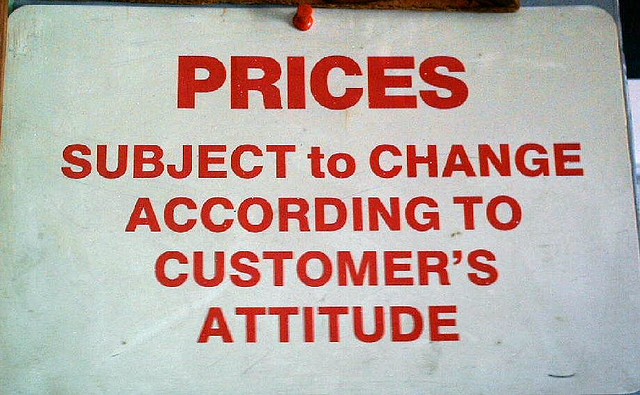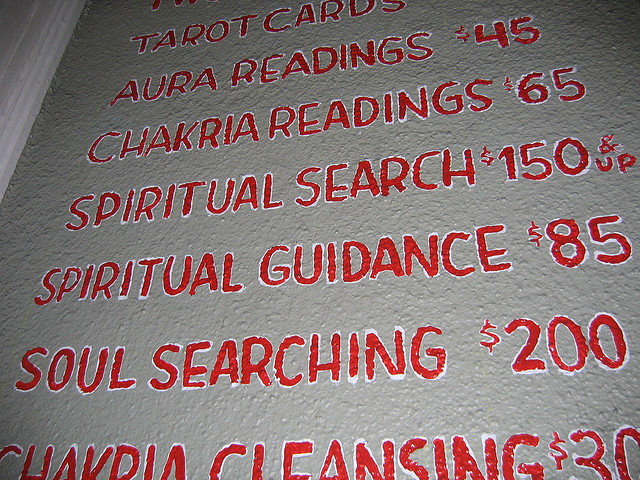Don’t Be Afraid to Charge What You’re Worth
I talk to a lot of freelancers about how to handle their prices, particularly how to raise their prices.
They tell me that they want to be able to charge what they’re worth without having to worry that they’ll lose business as a result, can I help them do that?
No, I can’t.
The fact is that not everyone is going to pay you what you’re worth. Because not everyone is going to value what you do in the same way.
Some folks will look at your new prices without batting an eye. They know they want the type and quality of work that you do. Price, while important, is not their main concern.
Others will focus almost exclusively on price. They’ll want your services, too, but their internal arithmetic will have assigned a different price tag to them. These people aren’t bad people, they’re just not your people.
And worrying about how to get business from people who are not your people is like trying to figure out how to get as many bee stings as possible while out in the garden this Spring. You’ll waste a lot of energy doing it and be less than thrilled with the result.
Instead, focus on understanding your people, the clients and potential clients that value your work the same way you do and want what you have to offer.
Find Your People
Until you’ve identified your people, your clients, the ones who want what you’re offering as much as you want to provide it, don’t bother coming up with a sophisticated pricing strategy. Charge people for your work, obviously, but don’t worry about creating perfect pricing.
Figuring out a sophisticated pricing structure before figuring our who your people are is like drawing a treasure map without knowing where the treasure is.
So who are your people?
Most simply: they are people you want to work with. You like doing the kind of work they need and you like working with them.
Take the time to sit down and describe who those people are. What kind of work do they do? How long have they been doing it? Where do they live? What do they like? Why do they need what you’re offering? Where do they shop? How often do they need what you do?
Answer these questions so you know who your people are. Not only will it make it easier for you to price your work for them, it’ll be easier for you to identify when someone isn’t a member of the tribe.
When a potential client approaches you and doesn’t fit the profile of your target client, you can decide what the best use of your time and energy is. That might mean cutting it short and saying, “You know, I don’t think we’re quite the right fit for one another, but here are two people I think you should talk to.”
Or it could simply mean reminding yourself, “This person isn’t my ideal client. If they balk at the price, that’s OK. I didn’t build this price for them.”
Don’t Be Afraid to Experiment
When you’re considering raising prices or adding new work to your portfolio of goods or services, don’t be afraid to experiment to find the best price for that work.
Too many freelancers and artists I talk to worry that if they try a particular pricing structure, they’ll be stuck with it if it doesn’t work out.
To which my response is generally, “If you don’t try it out, how will you know if it works?” You’re a freelancer, not a wizard who can magically see into the future. (Sorry.)
Changing your pricing approach because it wasn’t working, or testing out a new approach with a limited number of clients or customers, isn’t unethical or dishonest. (Though, intentionally overcharging someone is.) Experimenting is how you gather data about how your pricing works, and gathering data about how your pricing works is the best way to ensure your pricing fits your clients.
If someone asks you why your pricing is different, be honest. “I wanted to see what worked best for this type of work. Based on what you told me you needed from the work, I felt this price was fair. I’d love your feedback if you have any.”
Be OK with “No”
You are not your prices; your prices are not you.
You will hear people tell you “no” and it will be because of how much your work costs and that will be OK.
If you are trying to set up your business so you can avoid ever hearing the word “No,” honey, freelancing isn’t your thing.
Someone who says, “No,” frees you up to work with someone who says, “Yes!”
Someone who says, “No,” helps you avoid frustrating conversations about why only two sets of revisions were included in the price and no you can’t turn the changes around in 24 hours.
Someone who says, “No,” isn’t a bad person, they’re just not your person. And they’re certainly not the last person who will ask to work with you. Even if it might feel that way in the moment.
Cultivate a healthy appreciation for the positive part of “No,” and nearly everything about freelancing, from pricing to client demands, will be easier.
How did you figure out who your clients were and what pricing worked best for your work with them?
Categories: The Rest







Hi Katie, thanks again for hitting the nail on the head! For years, I offered 1/3 discount off my usual hourly rate to other artists and creatives, on the premise that artists usually don’t have the money that business owners do. Result: I got more business from artists, and made less money.
About 2 years ago I dropped this policy, and started charging artists the same as other clients. The surprise was, most of them didn’t bat an eye at the change. I don’t think I lost a single customer due to the higher charges.
As it turned out, my premise was incorrect – most of the artists that were hiring me, actually do reasonably well in their businesses. They just cry poor a lot.
Best, James